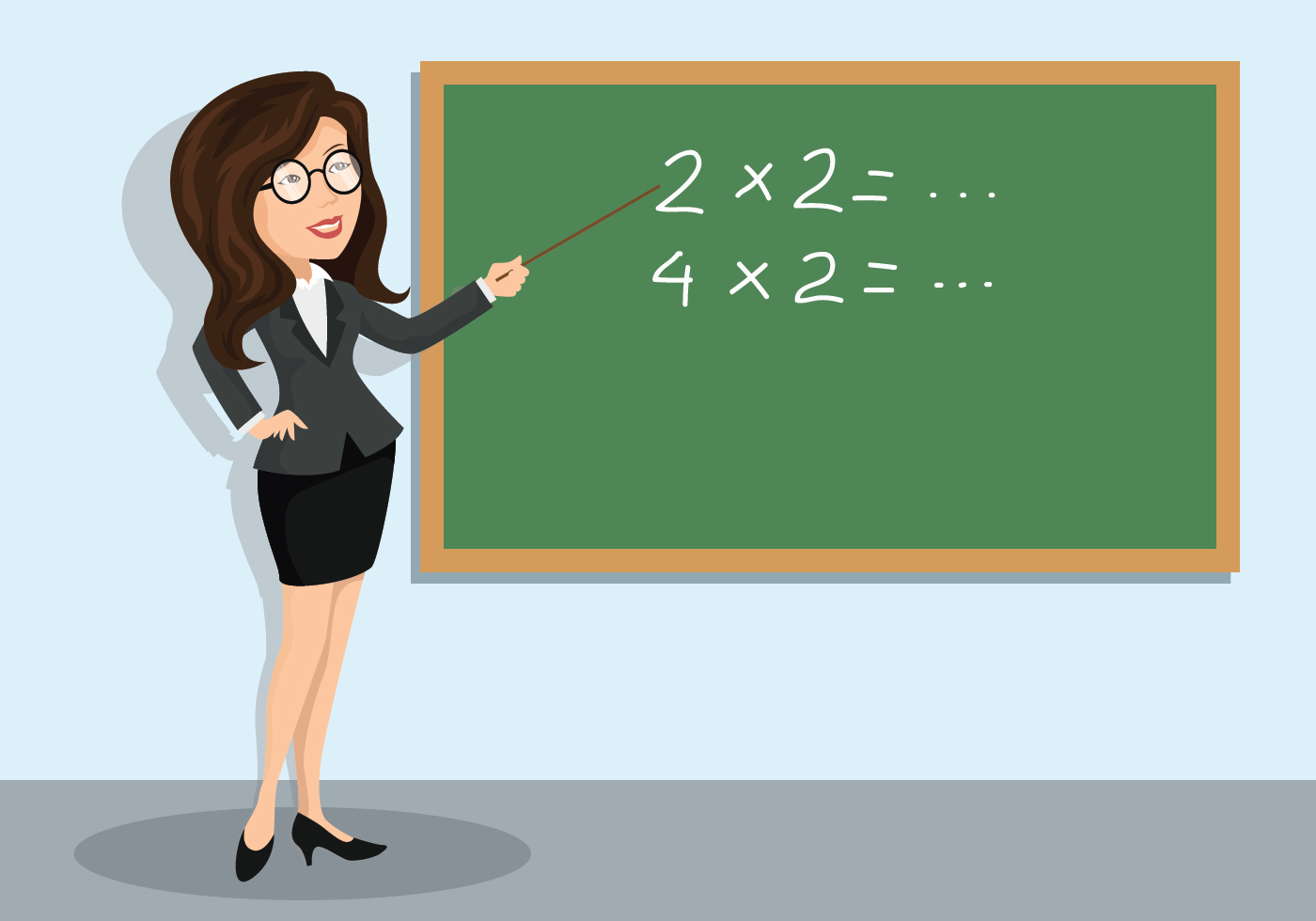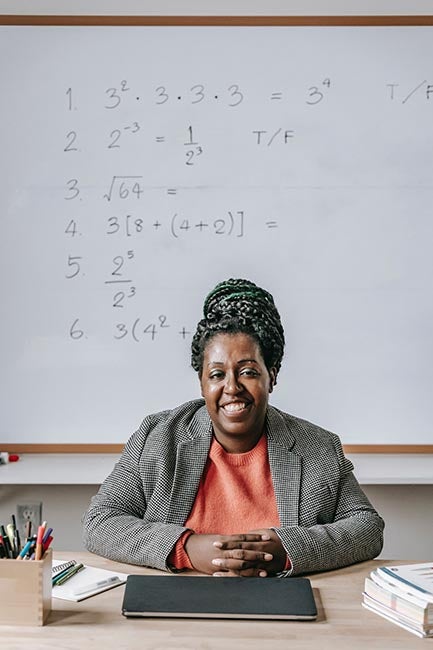How experienced math teachers enhance math achievement through innovative teaching strategies
Wiki Article
Attaining Business Excellence: Recognizing Sector Standards and Strategic Leadership for Mathematics Professors
Accomplishing enterprise quality in maths education and learning requires a careful exam of sector requirements and the duty of strategic management. Mathematics professors must recognize how these criteria shape curriculum and training approaches. In addition, efficient leadership can drive collaboration and specialist development among educators. This diverse technique increases questions about the sensible implications for trainees' profession preparedness. What techniques can professors embrace to connect the gap between education and sector demands?The Value of Market Standards in Mathematics Education
In the domain of maths education and learning, adhering to market requirements is important for making certain that programs properly prepare pupils for real-world applications. Industry standards offer a framework that straightens academic results with the skills needed in numerous professions. By including these requirements, math programs can boost their importance and rigor, thereby boosting pupil engagement and learning outcomes.
Strategic Leadership: Defining Obligations and duties
Effective critical management within mathematics professors calls for a clear meaning of roles and obligations to guarantee optimal operating and placement with institutional goals. Leadership frameworks must be established to mark tasks amongst professor, managers, and assistance staff, guaranteeing that each private comprehends their contributions toward collective objectives. Professors leaders must cultivate a setting that advertises partnership and liability, enabling group members to involve properly in educational program advancement and analysis procedures.In addition, strategic leaders need to focus on recurring professional growth, making sure that faculty members are fully equipped to satisfy the evolving needs of maths education. This involves not just lining up private duties with institutional priorities yet additionally cultivating a culture of continuous improvement and innovation. By plainly defining duties, tactical leadership can improve interaction, improve decision-making processes, and ultimately add to a much more reliable and natural mathematics faculty, positioned to fulfill the obstacles of modern-day education and learning.
Best Practices for Enhancing Teaching and Discovering
In the search of improving training and learning, math faculty can benefit from cutting-edge training methods that engage trainees properly. Carrying out collective knowing atmospheres cultivates teamwork and crucial thinking skills among learners. These best techniques are crucial for producing a dynamic educational experience that promotes deeper understanding of mathematical principles.Innovative Teaching Techniques
While conventional techniques of mentor have their area, innovative training methods are important for boosting interaction and understanding among mathematics professors and their trainees. Strategies such as flipped classrooms and problem-based knowing encourage energetic involvement, enabling students to take ownership of their discovering. Incorporating innovation, such as interactive simulations and online cooperation devices, further sustains diverse learning styles and cultivates critical thinking. In addition, making use of real-world applications in lessons assists students link mathematical ideas to daily life, making the topic a lot more enticing and pertinent. Professor that welcome these methods can produce a dynamic learning setting that not only boosts understanding however likewise motivates a lifelong interest for mathematics. Embracing cutting-edge strategies inevitably leads to greater degrees of trainee success.
Collaborative Learning Atmospheres
Building on the ingenious teaching approaches formerly talked about, collective learning atmospheres play a pivotal function in enhancing the academic experience for maths professors and their students. These settings urge energetic interaction and foster a feeling of neighborhood, enabling students to gain from each other and establish vital believing skills. Best methods consist of structured team job, peer tutoring, and project-based knowing, which promote partnership and shared responsibility for finding out end results. Faculty needs to facilitate discussions and provide guidance while enabling students to explore principles collectively. Furthermore, incorporating technology can boost collaboration by providing platforms for communication and source sharing. Ultimately, collective knowing settings equip students to take ownership of their education and learning and grow a deeper understanding of mathematical principles through team effort and communication.
Lining Up Professors Goals With Institutional Purposes
Straightening professors goals with institutional goals is important for promoting a cohesive educational setting that boosts both mentor efficiency and pupil success. When professor understand and embrace the wider mission of their institution, Our site their mentor methods can be customized to support these objectives. This placement assures that faculty are not just meeting departmental expectations however likewise adding to the overarching objectives of the establishment, such as enhancing student engagement and scholastic performance.To accomplish this positioning, regular communication between professors and administration is vital. Workshops and collective meetings can help with discussions on institutional priorities and how professors can integrate these into their educational program. Furthermore, efficiency assessments can be developed to mirror these lined up objectives, motivating faculty to introduce in their teaching methods. Inevitably, when faculty objectives reverberate with institutional purposes, they cultivate a more unified approach to education, benefiting both educators and pupils alike.
Growing a Culture of Continuous Improvement
Promoting a society of continual enhancement within maths faculty is important for enhancing both training quality and trainee results. This entails producing a setting where professor are encouraged to routinely analyze their mentor techniques and look for responses. Specialist advancement possibilities ought to be readily available, allowing educators to discover new pedagogical approaches and incorporate evidence-based methods right into their curriculum.In addition, cooperation amongst professors is crucial; sharing experiences and insights can bring about cutting-edge options and enhanced teaching methodologies. Establishments ought to carry out systematic examination processes, making it possible for professors to assess their performance and determine areas for growth.
Finally, recognizing and celebrating success, regardless of how little, reinforces the commitment to improvement. By embedding constant improvement right into the professors culture, mathematics divisions can improve their overall effectiveness, inevitably profiting both educators and trainees in the search of academic quality.
Cutting-edge Techniques to Mathematics Program Growth
Many ingenious approaches can change maths program development, making it a lot more receptive to the progressing educational landscape. experienced math teachers. One effective technique includes integrating modern technology, such as online knowing platforms and interactive software, to boost trainee engagement and availability. This change enables a combined learning atmosphere, accommodating varied learning designsMoreover, adopting a project-based discovering framework encourages collective analytic and real-world application of mathematical ideas. Faculty can additionally stress interdisciplinary connections, highlighting just how maths intersects with fields like art, engineering, and scientific research, fostering an extra holistic academic experience.
Routine comments from students and market stakeholders can direct educational program changes, making certain importance and roughness. In addition, offering specialist advancement chances for faculty can promote ingenious mentor methods and keep teachers educated of the current patterns. Via these strategies, mathematics programs can cultivate a dynamic discovering ambience that prepares trainees for future challenges and careers.
Often Asked Concerns
How Can Professors Determine the Influence of Market Standards on Student Outcomes?
Faculty can determine the impact of market requirements on pupil end results by evaluating evaluation results, tracking work rates, getting employer responses, and carrying out longitudinal research studies to contrast trainee efficiency before and after executing the standards.What Resources Are Available for Specialist Growth in Mathematics Education?
Various resources for specialist advancement in maths education include online training courses, workshops, webinars, professional organizations, conferences, and peer partnership possibilities. These systems promote skill improvement, innovative teaching methods, and efficient integration of modern technology right into try this site mathematics instruction.Exactly How Do Sector Standards Vary Across Various Geographical Regions?
Industry requirements vary considerably across geographical areas as a result of factors like governmental guidelines, academic concerns, and social influences. These disparities can impact curriculum development, teaching methodologies, and the application of assessment techniques in maths education and learning.What Duty Does Modern Technology Play in Achieving Venture Excellence in Mathematics?
Modern technology boosts enterprise quality in maths by simplifying processes, enabling data analysis, promoting partnership, and giving accessibility to resources. It equips trainees and teachers alike, advertising cutting-edge training methods and improving total instructional outcomes in the area.How Can Faculty Efficiently Team Up With Industry Allies?

In the pursuit of improving teaching and learning, math faculty can benefit from innovative training techniques that involve pupils successfully. While standard methods of mentor have their location, ingenious training techniques are important for improving engagement and understanding amongst maths faculty and their pupils. Building on the innovative training methods previously talked about, collaborative discovering atmospheres play a critical role in improving the instructional experience for maths faculty and their trainees. Lining up professors goals with institutional purposes is important for promoting a cohesive educational atmosphere that boosts both teaching effectiveness and trainee success. Fostering a society of constant improvement within mathematics professors is necessary for boosting both training high quality and trainee outcomes.
Report this wiki page